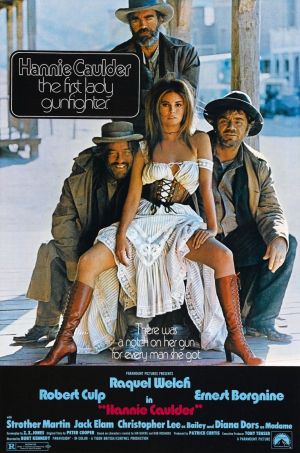★★
“Imagine Tonya Harding playing Jason Bourne. Yep, it’s like that.”
 This can only be described as a mess, albeit a crappily entertaining one, with a leading lady in Phillips, who almost made it to the Olympics, being described as “the next Mary-Lou (Retton)”, before trying her hand in low-budget action. She plays an international-level gymnast and martial-arts expert, whose parents are, unknown to her, involved in a plot involving the launch codes for Ukrainian missiles. The mother is killed by villainous Brit, Carla Davis (Douglas – apparently Jenny Agutter was unavailable. Or, more likely, too expensive), who wants to get her claws on the codes for some reason. Hey, she’s a villain: what more does she need? She captures Dad (Henriksen), but not before he has given his daugher the first in a series of clues which will lead her and investigative journalist Rex Beechum (Thomerson), apparently with an unlimited expense account, around the globe from Rome to Kuala Lumpur to Hong Kong and Athens, bumping into various unexpected siblings along the way.
This can only be described as a mess, albeit a crappily entertaining one, with a leading lady in Phillips, who almost made it to the Olympics, being described as “the next Mary-Lou (Retton)”, before trying her hand in low-budget action. She plays an international-level gymnast and martial-arts expert, whose parents are, unknown to her, involved in a plot involving the launch codes for Ukrainian missiles. The mother is killed by villainous Brit, Carla Davis (Douglas – apparently Jenny Agutter was unavailable. Or, more likely, too expensive), who wants to get her claws on the codes for some reason. Hey, she’s a villain: what more does she need? She captures Dad (Henriksen), but not before he has given his daugher the first in a series of clues which will lead her and investigative journalist Rex Beechum (Thomerson), apparently with an unlimited expense account, around the globe from Rome to Kuala Lumpur to Hong Kong and Athens, bumping into various unexpected siblings along the way.
One senses this globe-hopping was largely funded by Pyun’s frequent flier miles, and he makes sure that we see enough of the actors that we know they were actually there – I suspect Henriksen was excluded, as he is never shown in anywhere that couldn’t be faked outside a studio, nor is he ever on-screen at the same time as Thomerson. Despite an opening credit sequence which is clearly trying to channel a seventies Bond flick (not least in the jet-pack with which Henriksen escapes the bad guys), this plays more like a distaff version of Gymkata, with significantly poorer production values, though at least Phillips doesn’t need to be doubled for the gymnastics scenes. There’s a bizarre subplot involving evil Romanians, which also appears to have strayed in from a Cold War era, and many, many chase sequences, which pause briefly for exposition, or Phillips to demonstrate her mediocre martial-arts skills. There’s certainly no shortage of things going on, even if the interest level of these often remains questionable. However, I’ll admit, I did laugh at the running joke which sees Beechum perpetually being knocked out by someone or other.
Thomerson and Henriksen could do this kind of thing in their sleep, and apparently did so here, though still lend the film an air of quality that it largely lacks otherwise, and Douglas makes for a decent villainess. Phillips is more problematic: after Betrayal, it was the second film of the day where we had a lead actress who wasn’t actually an actress, and it shows. I’m now fairly convinced that some kind of test should be required of anyone starring in a movie, and if you don’t pass, your artistic license gets revoked. Phillips, wisely, retired from acting there after, saving the world from further punishment – if, unfortunately, not further Albert Pyun movies.
Dir: Albert Pyun
Star: Kristie Phillips, Tim Thomerson, Sarah Douglas, Lance Henriksen





 “I’m a Barbie girl, in a Nazi world…” That’s an equally appropriate summary here, because the heroine in this flick, set in occupied Norway during World War II, was the lead singer of Aqua, famous (or notorious, if you prefer) for a certain catchy pop ditty. She plays – and I know you’ll find this a stretch – a singer, who works in a nightclub, which caters for high-ranking Nazi officers, while she simultaneously works with the local resistance and beds SS Major Kruger (Otto). The Allies are seeking plans of a local aluminium smelting plant, a key cog in the Third Reich’s war machine, so an airstrike can be called down on to it. Local businessman Tor Lindblom (Saheim) partners with Kruger to profit from the industrial operation, and play both sides, until their pet auditor is replaced by one rather less amenable to their embezzlement.
“I’m a Barbie girl, in a Nazi world…” That’s an equally appropriate summary here, because the heroine in this flick, set in occupied Norway during World War II, was the lead singer of Aqua, famous (or notorious, if you prefer) for a certain catchy pop ditty. She plays – and I know you’ll find this a stretch – a singer, who works in a nightclub, which caters for high-ranking Nazi officers, while she simultaneously works with the local resistance and beds SS Major Kruger (Otto). The Allies are seeking plans of a local aluminium smelting plant, a key cog in the Third Reich’s war machine, so an airstrike can be called down on to it. Local businessman Tor Lindblom (Saheim) partners with Kruger to profit from the industrial operation, and play both sides, until their pet auditor is replaced by one rather less amenable to their embezzlement. Reiko (Ike) is leader of the Athens Gang, a low-level all-girl gang, who specialize in car thefts and rolling naive salarymen with the lure of hot sex. They’re part of a hierarchy, which includes a male gang under whom they loosely operate, who are in turn on the fringes of a Yakuza group. There’s also a motor-cycle gang and its leader (Taki) who don’t obey anyone, and that independence is really what Reiko wants, even though her group is obliged to follow certain rules, such as not getting attached to any man. Things are disrupted by the return of former leader Jun (Kagawa) from reform school: will Reiko be able to hold on to her position? It’s just one of a large number of plot threads here: you also get the blackmail of a pop star; a hitman agreeing to one last mission; a gangster estranged from his wife and daughter; sex on motorcycles for no apparent reason; a journalist with a nose for scandal; and, of course Reiko failing to follow her own rule about no attachments.
Reiko (Ike) is leader of the Athens Gang, a low-level all-girl gang, who specialize in car thefts and rolling naive salarymen with the lure of hot sex. They’re part of a hierarchy, which includes a male gang under whom they loosely operate, who are in turn on the fringes of a Yakuza group. There’s also a motor-cycle gang and its leader (Taki) who don’t obey anyone, and that independence is really what Reiko wants, even though her group is obliged to follow certain rules, such as not getting attached to any man. Things are disrupted by the return of former leader Jun (Kagawa) from reform school: will Reiko be able to hold on to her position? It’s just one of a large number of plot threads here: you also get the blackmail of a pop star; a hitman agreeing to one last mission; a gangster estranged from his wife and daughter; sex on motorcycles for no apparent reason; a journalist with a nose for scandal; and, of course Reiko failing to follow her own rule about no attachments. You can almost imagine the trailer for this anime series being done by The Trailer Guy [y’know, who does all the voice-overs for Hollywood action flicks]: “In a world where demons stalked the land… One woman… Was humanity’s final hope…” The particular focus here is Clare (Kuwashima), one of 47 Claymores, an all-female sect of nomadic warriors who travel a fictional country, battling the flesh-eating Yoma, with combat abilities that border on the magical. But doing so requires them to unleash their own Yoma power, an act which runs the risk of them becoming what they hunt if they lose control. Clare rescues Raki (Takagi), who becomes her companion and cook, but out heroine has a mission of her own: hunting down and killing the Yoma who, years previously, killed her own mentor, Teresa of the Faint Smile.
You can almost imagine the trailer for this anime series being done by The Trailer Guy [y’know, who does all the voice-overs for Hollywood action flicks]: “In a world where demons stalked the land… One woman… Was humanity’s final hope…” The particular focus here is Clare (Kuwashima), one of 47 Claymores, an all-female sect of nomadic warriors who travel a fictional country, battling the flesh-eating Yoma, with combat abilities that border on the magical. But doing so requires them to unleash their own Yoma power, an act which runs the risk of them becoming what they hunt if they lose control. Clare rescues Raki (Takagi), who becomes her companion and cook, but out heroine has a mission of her own: hunting down and killing the Yoma who, years previously, killed her own mentor, Teresa of the Faint Smile. If genre entries produced in Italy are “spaghetti Westerns”, what does that make those produced in Britain? “Fish and chip Westerns?” “Roast beef Westerns?” Shot in Spain, but made by Tigon Film, and including such quintessential Brits as Christopher Lee and Diana Dors in supporting roles, this is nicely-photographed and hits all the right notes. But as the titular character, who seeks revenge after her husband is gunned down, and she herself raped, by the Clemens brothers, Welch perhaps has too much cinematic baggage. While responsible for one of the all-time absolute
If genre entries produced in Italy are “spaghetti Westerns”, what does that make those produced in Britain? “Fish and chip Westerns?” “Roast beef Westerns?” Shot in Spain, but made by Tigon Film, and including such quintessential Brits as Christopher Lee and Diana Dors in supporting roles, this is nicely-photographed and hits all the right notes. But as the titular character, who seeks revenge after her husband is gunned down, and she herself raped, by the Clemens brothers, Welch perhaps has too much cinematic baggage. While responsible for one of the all-time absolute